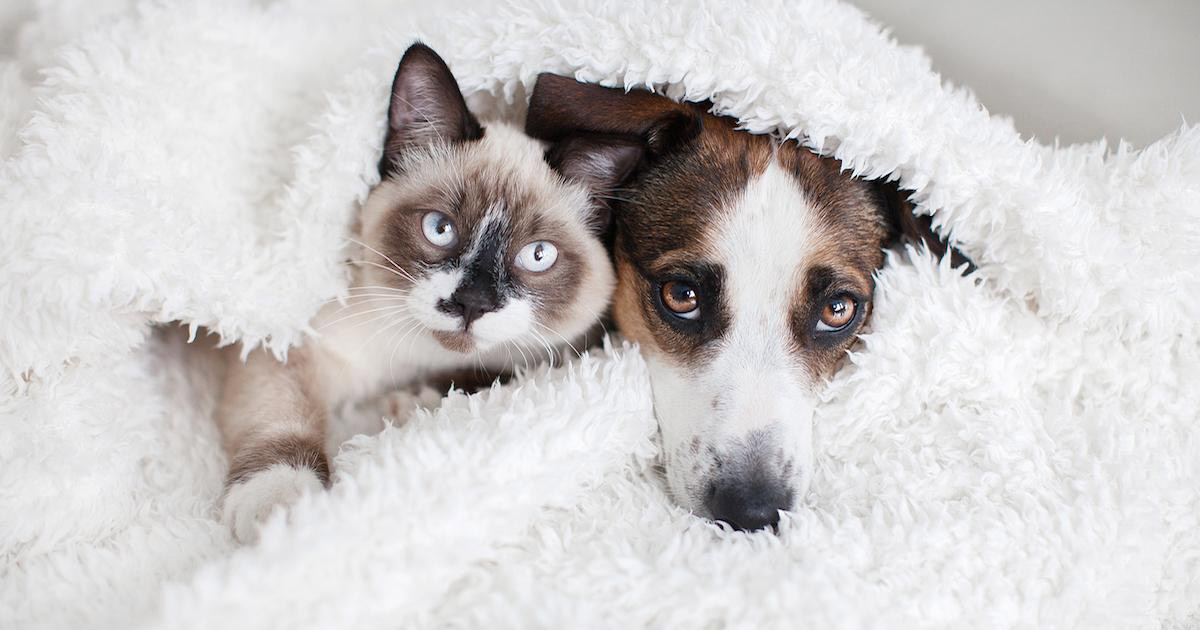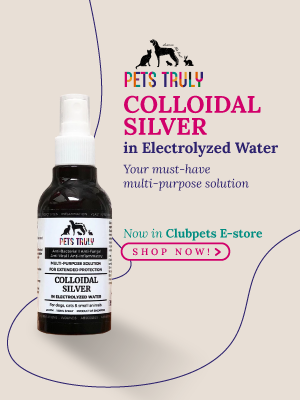If you’re reading this right now, chances are, you suspect that your pet is getting on in years and you wonder if there’s anything you can do to help your elderly companion age gracefully and comfortably. As it turns out, there is!
The effects of ageing
Elderly pets have unique health needs. This is due to ageing, which is a gradual, irreversible, and inevitable process of the natural decline of a body’s organ functions.
As your pet cat or dog ages, its body’s ability to synchronise the functions of its organ system also diminishes. The age-related dysregulation of its metabolism results in the excessive production of free radicals (oxidative stress) as well, which causes damage to cells and all organ systems, including the immune system.
All these add up and lead to a decline in your pet’s physical condition, immune responses, organ function, and sensory and cognitive abilities, and so we, as their caretakers, have to step in and provide them with the extra help and care that they now need.
Knowing when your pet enters its senior years
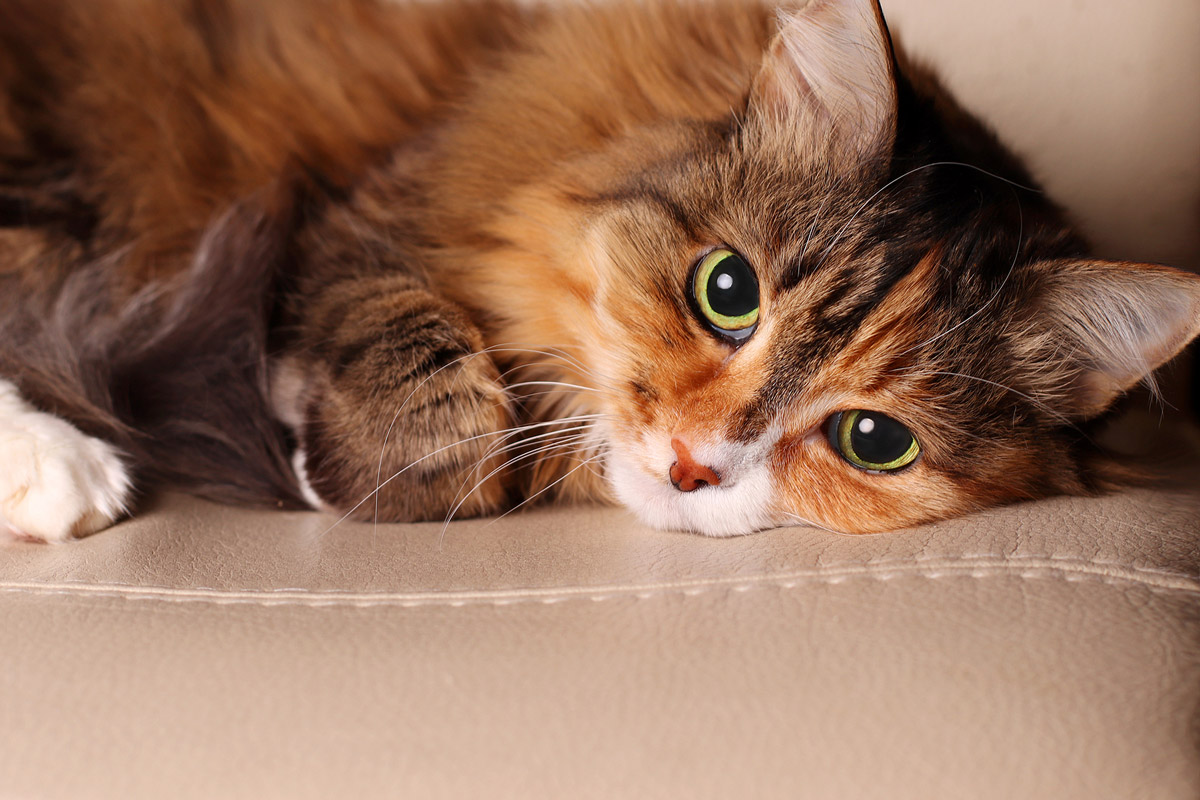
Before you learn how to care for an elderly pet, you need to know if your pet is entering its senior stage of life or not. One way to confirm your suspicions is to bring your pet for a medical checkup and consult the veterinarian, but there are subtle signs of ageing that can clue you in! For signs of ageing in cats, head here. For signs of ageing in dogs, click here.
It’s important to note that cats are now living longer lives than before as a result of advances in healthcare, improved nutrition, indoor living, and better homecare that comes from being treated as companions and part of the family. With this increase in lifespan, cats are considered senior between the ages of 11 to 14 years today. Accordingly, the signs of ageing appear from the age of 11 years.
As for dogs, when humans created the modern domestic dog breeds that exist today, genetic selection altered physical traits, temperament, health, and longevity. Because of this, the lifespan of a dog depends on its breed and size. Typically, a dog is considered a senior when it enters the last 25% of the expected lifespan of its breed! For example,
Maltese:
Expected lifespan: 14 – 16 years
Senior years: 10.5 – 12 years
Chihuahua:
Expected lifespan: 15 – 18 years
Senior years: 11 – 13 years
Miniature and Toy Poodle:
Expected lifespan: 15 – 18 years
Senior years: 11 – 13 years
Golden Retriever:
Expected lifespan: 10 – 13 years
Senior years: 7.5 – 10 years
Labrador Retriever:
Expected lifespan: 10 – 13 years
Senior years: 7.5 – 10 years
Ultimately, every pet ages differently. Oftentimes, the signs of ageing are very subtle, so we strongly recommend bringing your pet for regular health check-ups at least once a year to detect them early on! The earlier you are aware of their needs, the sooner you can begin making necessary adjustments to your elderly pet’s lifestyle to improve its quality of life.
Age-related chronic diseases
Pet owners should also know that while ageing is natural and does not seriously impact the pet’s ability to function, a pet’s senior years are associated with the appearance of chronic diseases, which are irreversible and progressive.
These chronic diseases interfere with the pet’s ability to carry out its daily activities and ability to interact. If left untreated, they can be life threatening or lead to a decision for humane euthanasia.
Oftentimes, the early signs of chronic diseases are similar to those of healthy ageing. As a result, an owner who mistakenly attributes the early signs of a chronic disease to ageing may only bring the pet to the vet until more severe signs are observed, by which the disease would have already advanced to a stage where fewer treatment options are available.
Care measures for an elderly pet
To ensure that your pet does not endure any unnecessary suffering and to provide your precious furry friend with the highest quality of life, never assume that there’s nothing you can do when your pet is growing old! All you need to do is to follow these care tips:
1. Closely monitor your pet for signs of illness
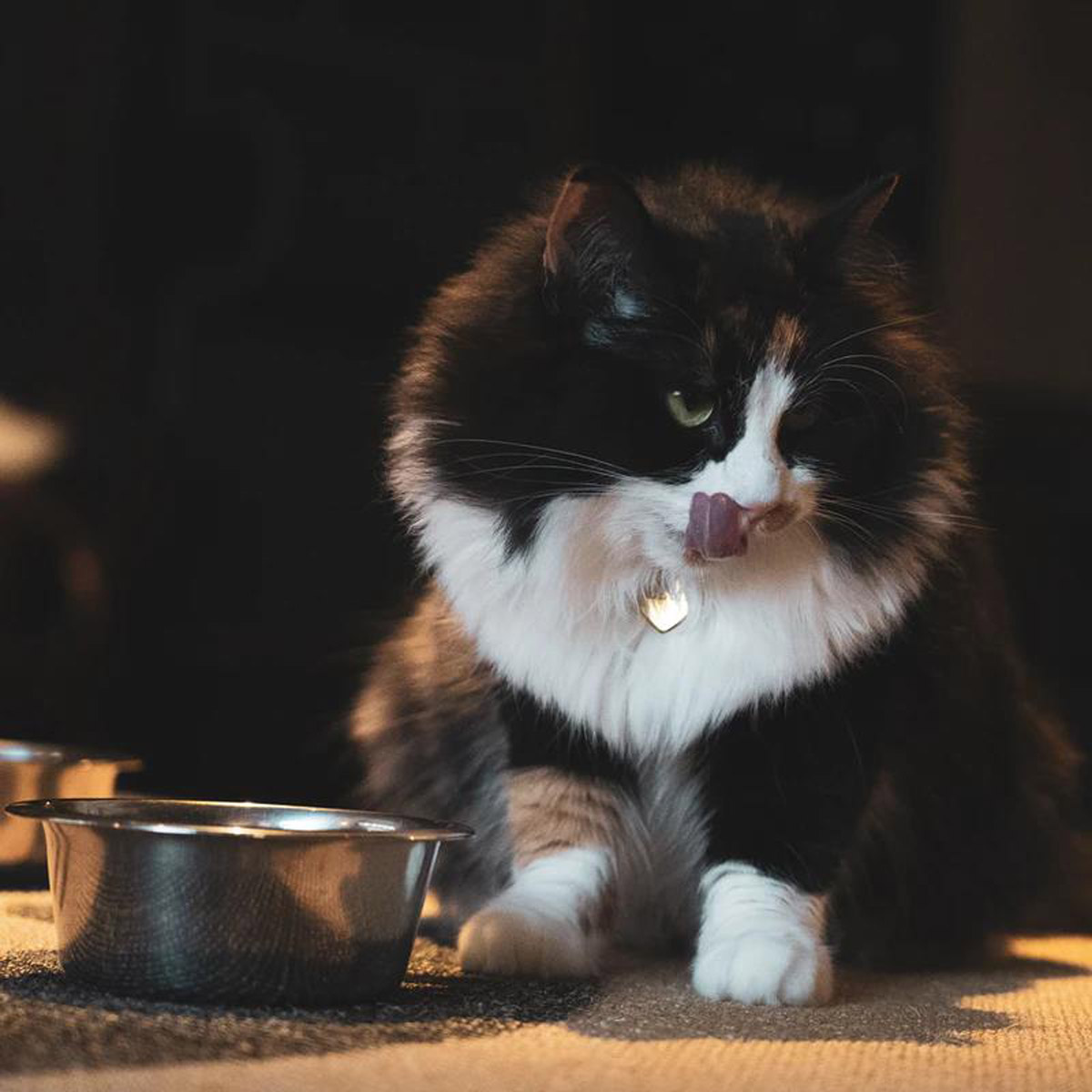
Source: Rasmus Gerdin on Unsplash
Since your pet can’t speak or book a vet consultation for itself, it is up to you, its owner, to have a sharp eye and pick up on signs of discomfort as early as possible. To do so, you’ll need to develop a good understanding of your pet’s usual behaviour and daily habits so that you can detect even the slightest of changes, and keep a look out for these signs of age-related diseases:
- An increase or decrease in appetite and thirst that persists for more than 2 days
- Sudden or drastic changes in weight
- Has an interest when food is presented but eats slowly, has difficulty picking up its food, and has markedly offensive breath
- Declining vision and changes in the eye i.e. dry eye, cloudiness
- Lumps and bumps in or below the skin (Fast-growing or ulcerating skin growths warrant an immediate visit to the vet!)
- Persistent vomiting, diarrhoea, or coughing
- Persistent increase in thirst or increased frequency and/or volume of urination
- Difficulty getting up, unsteady gait, and difficulty going up and down the stairs
- Urinary incontinence
- Changes in behaviour i.e. irritable, displays aggression
- Cognitive dysfunction such as
- Loss of house-training
- Inability to recognise owners
- Changes in wake-sleep pattern
- Disorientation eg. confusion, staring blankly, and getting lost in the home
If you suspect that your pet is suffering from any of the symptoms above, we recommend bringing your pet to the vet for a thorough health examination and diagnostic tests immediately.
2. Be diligent when it comes to preventive measures

We cannot stress this enough! Preventive care is essential to ensure healthy and happy years for your pet. These include regular health check-ups, vaccinations, protection against external and internal parasites (heartworms, fleas, and intestinal parasites), and sterilisation.
Regular health check-ups are vital for senior pets because ageing is a risk factor
for developing infections and age-related diseases such as gum disease, osteoarthritis, hormonal diseases, heart disease, and cognitive dysfunction. As mentioned before, the symptoms of these diseases are often subtle and misread as effects of ageing, so a professional medical examination will allow early detection of these illnesses, which opens up more treatment and management options for your pet.
Besides early detection, regular trips to the vet also allows you to stay on top of your pet’s necessary vaccinations and protection against external and internal parasites such as heartworm, fleas, and intestinal parasites!
3. Work closely with your veterinarian
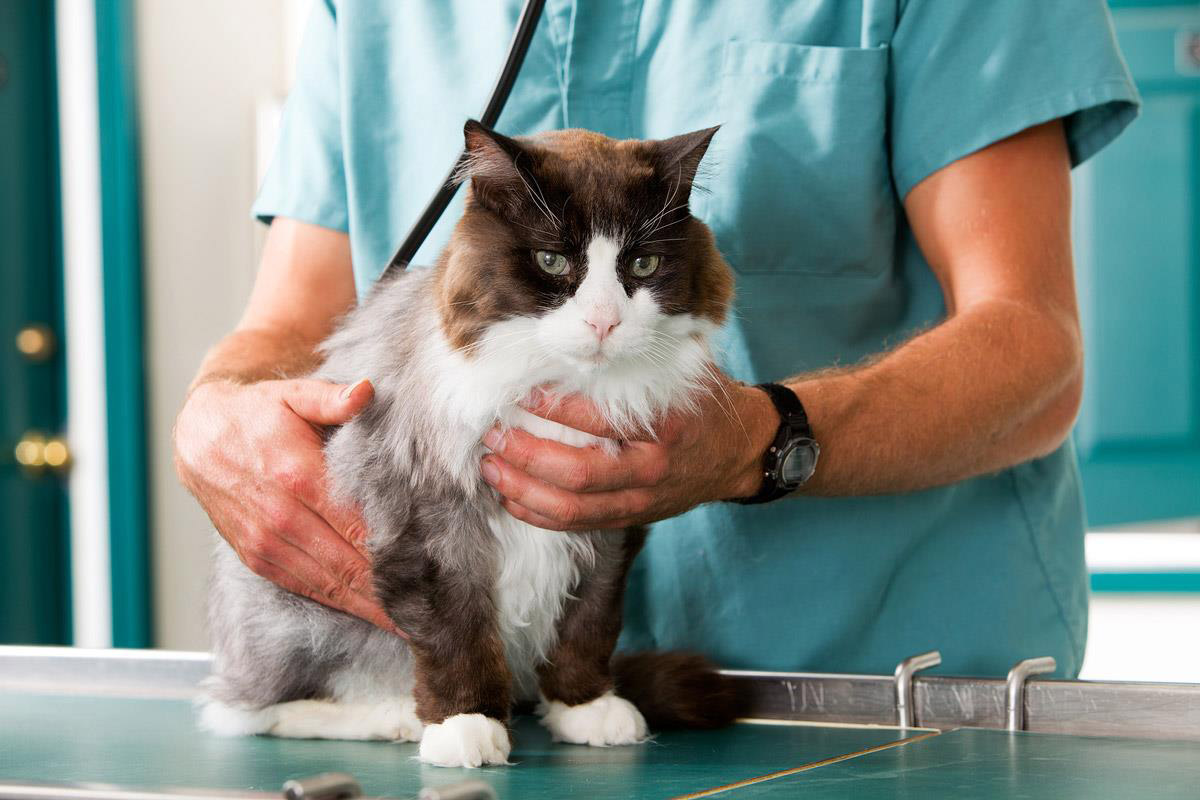
Have your vet and the clinic’s veterinary nurses your go-to source for all matters concerning your pet’s health! Vets have the knowledge and training to provide science-based medical information that will keep your pet healthy, so if you ever need up-to-date care advice and medical recommendations, turn to your trusted vet and nurses. They will be more than happy to work with you in keeping your furry critter in good health!
4. Support your pet’s unique needs
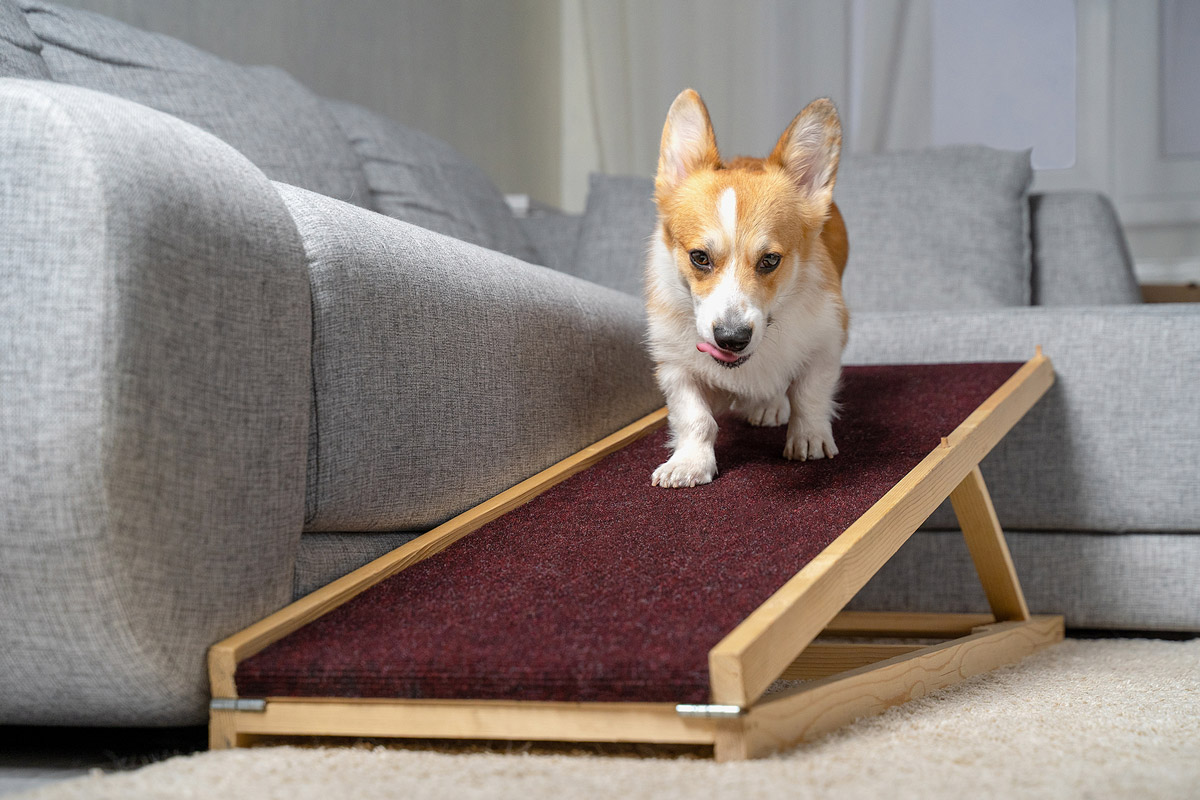
Senior pets have unique health needs that they did not use to require when they were much younger. From dietary adjustments to environmental support, here are some measures to implement to improve the quality and comfort of your elderly friend’s life:
Environmental support
Depending on your pet’s health condition, slight improvements to your house will be required to make its surroundings safer and more convenient for them to move around. Take note that this does not mean making major changes to its environment — senior pets may not take well to that.
- Fresh water at several accessible locations
- Soft bedding
- Non-slip surfaces if your cat has difficulty getting up and lying down and has an unsteady gait (rugs are a good solution)
- Protection against major temperature fluctuations (because old cats have reduced temperature regulation mechanisms)
- Night lights and barriers if your cat has reduced vision.
Mental and physical stimulation
Just because your pet is getting old does not mean that its need for regular exercise and mental stimulation is reduced. On the contrary, your elderly pet will need to stay as active as possible with moderate-levels of exercise to boost their physical health and keep their joints flexible, and a great deal of entertainment to get their brain juices flowing. This will keep them happy, healthy, and alert!
Think cardboard boxes, kick toys, and mazes for cats and food puzzles and regular walks around the neighbourhood (albeit with more shade and breaks in between) for dogs!
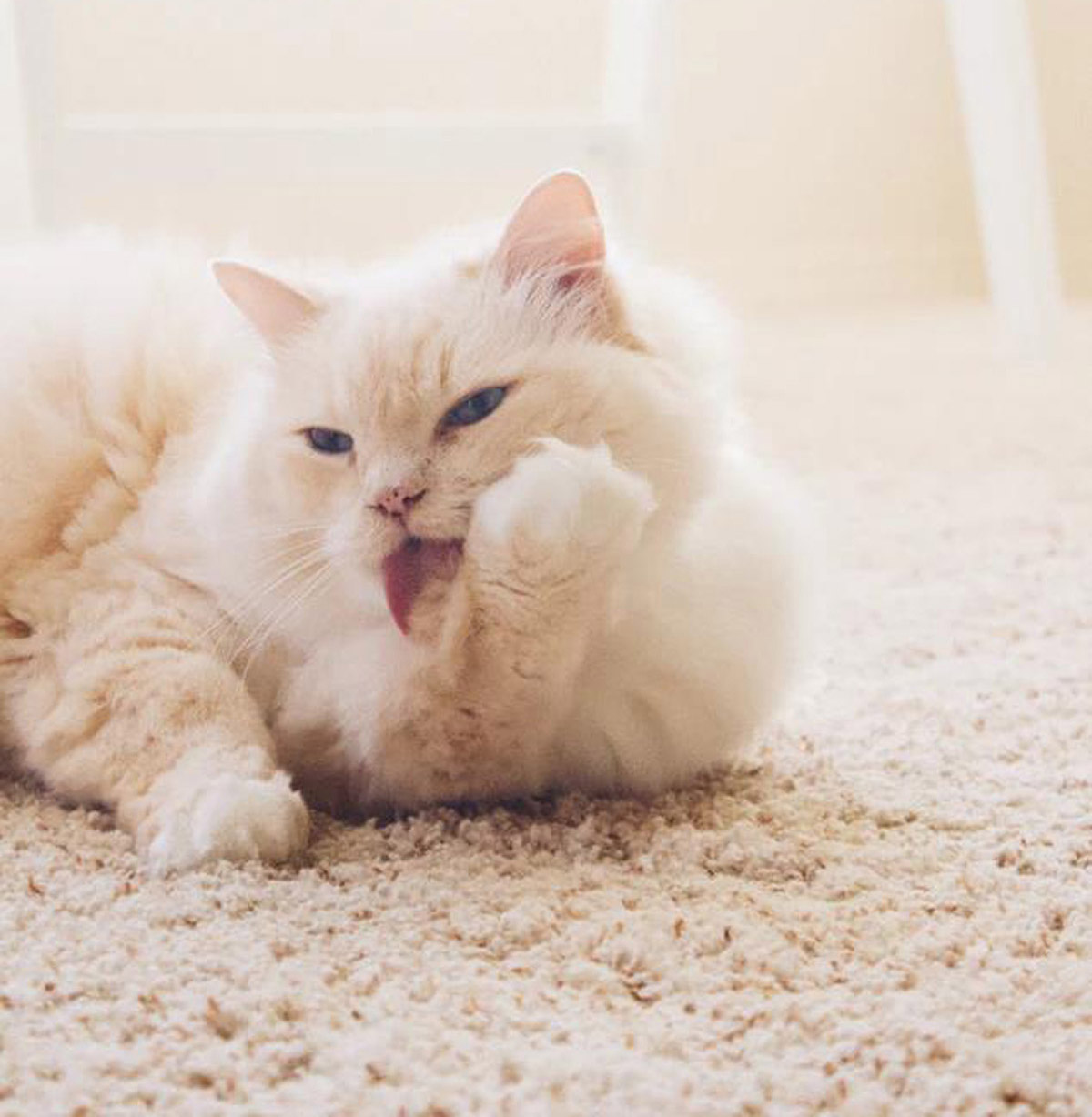
Source: Izabelle Acheson on Unsplash
Grooming needs
As pets age, they lose flexibility as well. This loss of flexibility will make self-grooming increasingly difficult for your cat or dog, which can adversely impact its health and well-being. Faecal and urine stains can cause skin burns and infections, dirty ears and eye discharge put your pet at risk of ear and eye infections, and overgrown nails make walking difficult and painful.
Make sure that your pet’s fur is clean and free from tangles, ears and eyes are cleaned regularly, nails and claws are kept trimmed, and oral hygiene maintained with regular dental check-ups and cleaning. Regular grooming will also allow you to detect the appearance of skin growths and lumps under the skin, which you should then bring to your vet’s attention as some of these may be cancerous.
Dietary changes
Cats and dogs need different diets at different stages of their lives. When your pet becomes a ‘senior’, you will also need to pay close attention to managing your pet’s weight and keeping it within an ideal range.
Obesity is very serious and must be avoided as it is a risk factor for chronic illness such as heart, respiratory, and skin diseases, as well as osteoarthritis — the leading cause of lameness and pain in cats and dogs. Usually, this means feeding smaller quantities of their regular meals or switching to a food with a lower energy density, because an elderly’s pet metabolism is slower than that of a young pet, plus it might be living a more sedentary lifestyle due to decreased energy levels and mobility!
On the flip side, there may be animals that start eating less because of difficulties chewing or health issues, so monitor your pet’s health and weight and work closely with your vet for an accurate diagnosis, recommended calorie intake, and if necessary, a prescription diet (for managing chronic conditions such as renal disease).
Cats and dogs also have slightly different nutritional needs due to their internal metabolic differences, with the former being obligate carnivores that need high-quality protein from animal sources rather than grain-based sources, taurine, and other essential vitamins and minerals as compared to the latter.
Typically, cats tend to drink less water than dogs and they are particular about the water that they drink. As a general rule of thumb, their drinking water should always be fresh and presented in a small, clean bowl made of materials that do not absorb odours! They also prefer the water bowl to be placed away from the food bowl, and it is recommended that senior cats should be fed wet food as it provides them with both food and moisture at once, helping them stay hydrated.
At the end of the day, whether you have a cat or dog on hand, dietary supplements are a good way to further meet your pet’s health needs. For example, to improve joint health, Antinol is an all-natural supplement that has clinically-proven to have anti-inflammatory properties that are over 100 times more effective than omega-3 fatty acids, and shows visible positive results after just 2 weeks of taking Antinol regularly!
Fend off joint pains in your senior pet with Antinol
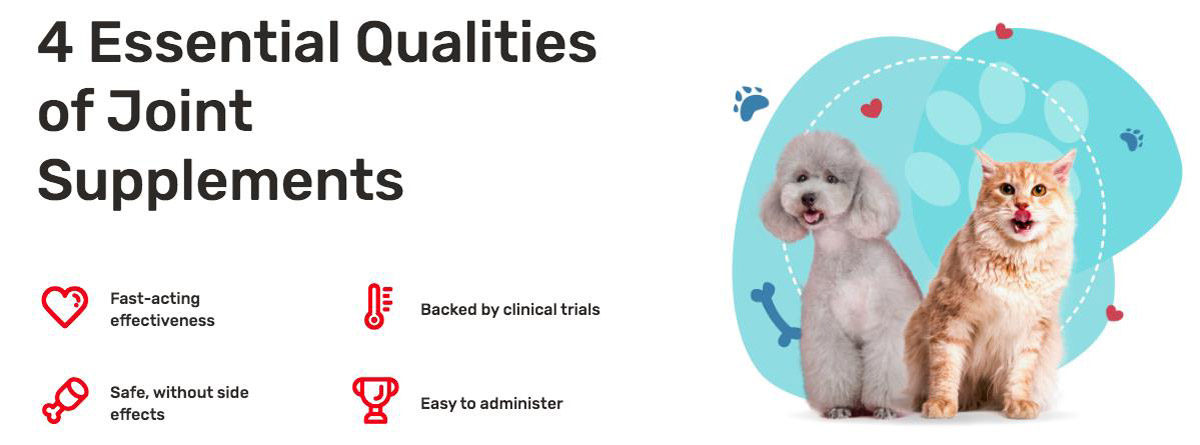
Source: Antinol.com.sg
An effective defence against mobility and inflammatory problems
A lipid extract from New Zealand Green-Lipped Mussels, Antinol is beneficial for fighting against osteoarthritis, the leading cause of debilitating lameness in cats and dogs, and other diseases that are caused by inflammation.
Recommended by veterinarians all around the world, its unique lipid extract has over 90 fatty acids working synergistically to create a potent anti-inflammatory effect! This includes rare and novel compounds such as OTA (octadecatetraenoic acid) and ETA (eicosatetraenoic acid), making Antinol that much more effective in reducing pain and improving mobility than supplements that simply contain flax oil, fish oil, and green-lipped mussel powder.
Safe to use for all
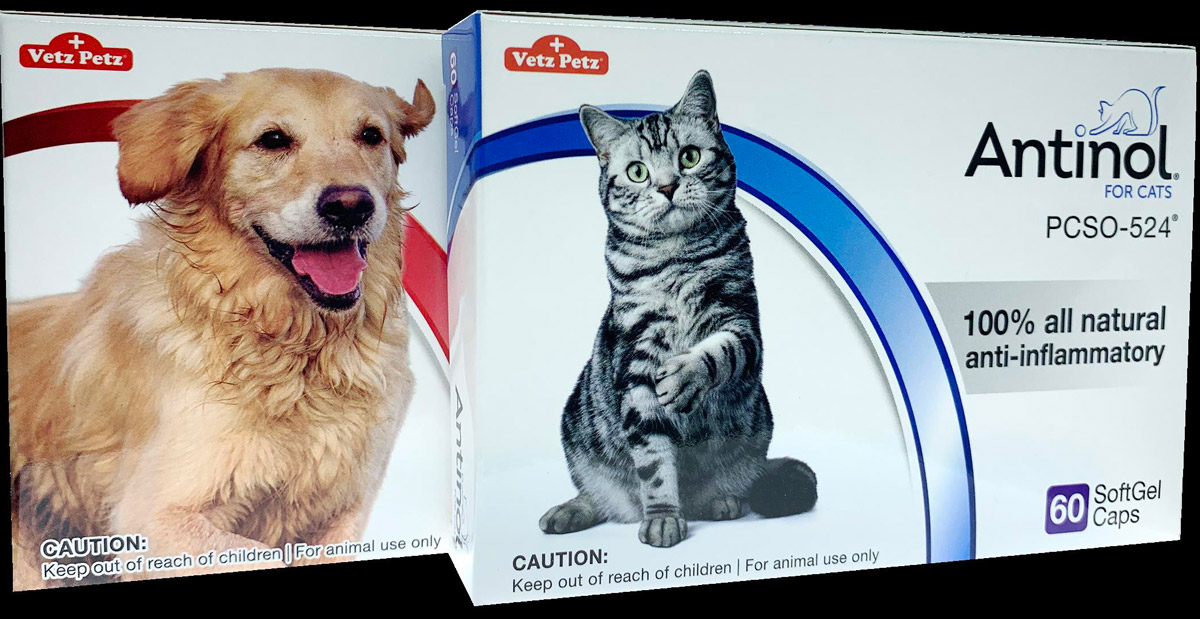
Source: Antinol
Compared to non-steroidal anti-inflammatory drugs (NSAIDs), long-term use of Antinol® has also been clinically proven to be safe with no effects on the liver, kidney, and gastrointestinal tract.
Allergy-safe since it only contains extracted lipids and no seafood proteins, Antinol® is suitable for all pets in need of relief from joint pains and diseases caused by inflammation. In fact, it’s the leading joint mobility therapy in Japan, and as mentioned earlier, 90% of dogs and cats showed visible improvement in mobility within two weeks of starting the supplement!
Available in gel cap form, Antinol® can either be swallowed whole or punctured to let out the liquid inside to be mixed with food, so that even the fussiest eater would be able to get their necessary daily dose.
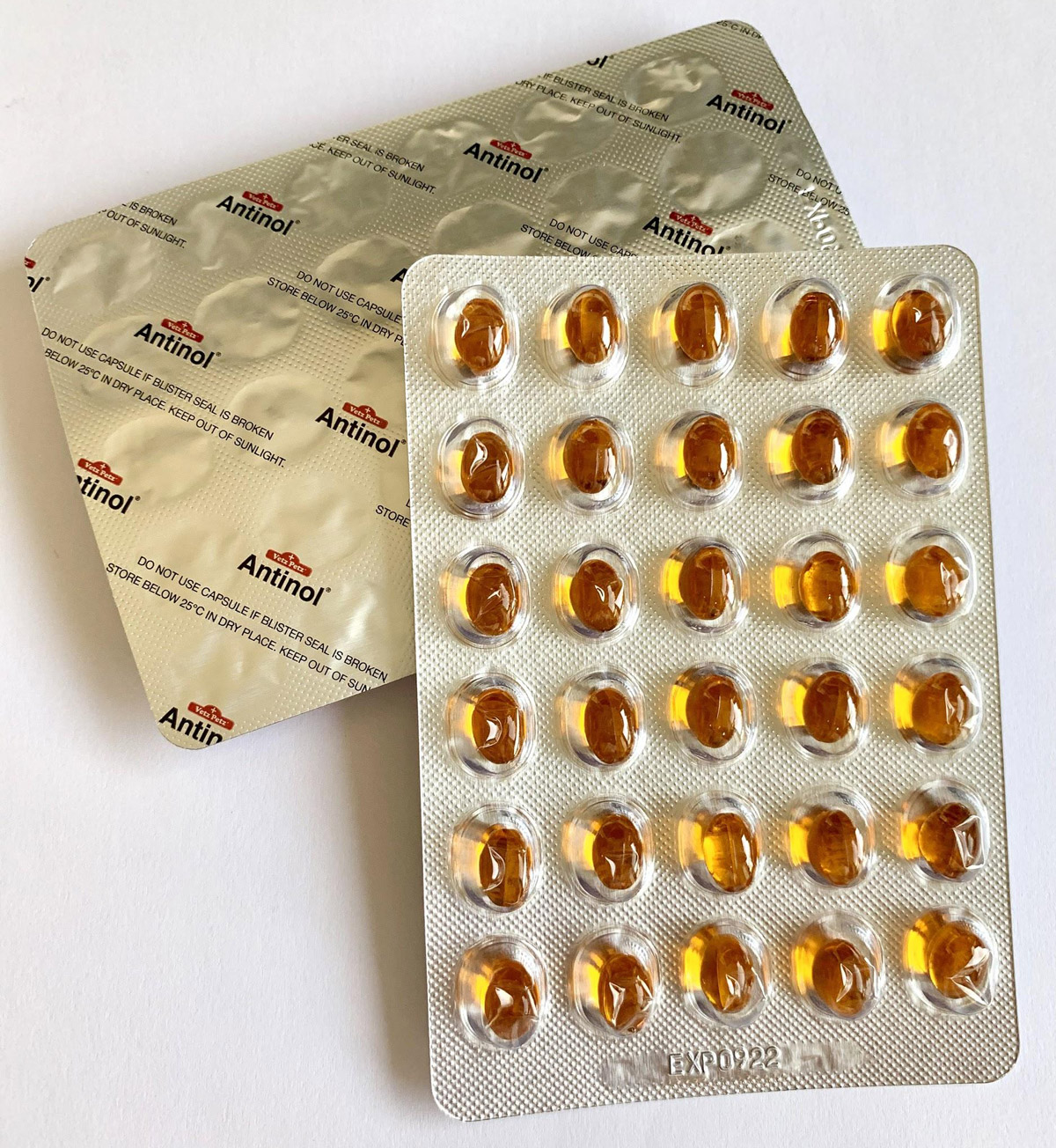
Antinol® gel caps
Source: Antinol
To get your senior pet started on Antinol®, it can be purchased over-the-counter at selected veterinary clinics. No prescription is required, so head here to find out which clinics carry Antinol® and direct message @Antinolsg here to find out more about how Antinol® can help your beloved companion!
This article was written for Pet Wellness Products Pte Ltd.

